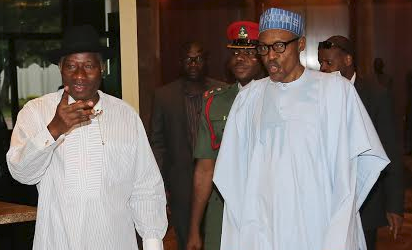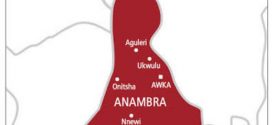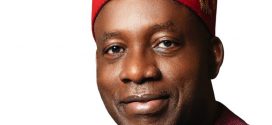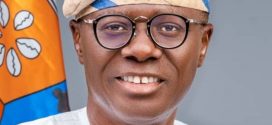Buhari, Change And Scapegoats
By
Azu Ishiekwene
Whether or not you like governor Rauf Aregbesola, you can hardly ignore his honesty and candor. When he spoke last Friday on the economics of change at The POINT magazine’s first anniversary, he did not pretend that the topic was chosen to flatter his party, the All Progressives Congress.
Seventeen months after Buhari’s election, the honeymoon is over and more and more people are asking if this is the change they voted for. Factories are closing down and people are losing jobs. Ethnic nationalism is flaring and militancy in the Niger Delta has a new, even more dangerous name and objective.
Homicides have become a staple in the daily news and the Naira has fallen 100% against the dollar in one year.
What is the cost of this change?
Aregbesola did not deny that change is coming at a very high cost but the main point of his argument was that Nigerians were forgetting too soon how and why we got into the present mess.
How can we forget, he said, that we spent about $20billion yearly to import food, out of which about $2.6billion was on rice alone? How can we forget that we spent another $4billion on textiles (including underwear and handkerchiefs) and footwear and trillions of Naira to pay fraudsters who made a killing from fake claims of petrol subsidy?
With oil selling at $120 per barrel, our problem was not the money but how to spend it.
But the response on the street has been different. While Aregbesola obviously inferred that we ate our way into this mess and ought to discipline our way out of it, protesters in Lagos and elsewhere were waving banners asking for the head of the governor of the Central Bank, Godwin Emefiele.
It will take more than the sacrifice of one man’s head to get the country back on track. The Central Bank has its problems and I’ve said it several times before. Up till January, the bank seemed so determined not to be left behind in the race to wasteland it had spent an estimated $66billion to fund bureaus de change in 11 years. The bank also responded late to the pressure for a flexible exchange rate regime and I said so at the time.
Yet President Muhammadu Buhari’s skeptical comments even after the CBN’s late response showed that we must look beyond scapegoats in the bank for the solution to our economic woes.
The country is broke and even if all the heads in the CBN were as big as Humpty Dumpty’s, the broken pieces would still not be enough to fix our appetite for foreign exchange.
What to do? Here again, I agree with Aregbesola – we either borrow to invest in capital projects or sell/restructure our underperforming assets to find the money we need. Of course a third option, which does not eschew the ones earlier made, is to clean up our rotten bureaucracy and legal system to attract foreign investments.
Whatever we do, leadership plays a big role. Wherever there has been recession or economic turmoil in the last 50 years or more – whether in the US under FDR, Clinton or Obama; UK under Cameron or Rwanda under Kagame – leadership at the highest level has been central to recovery.
Buhari’s government has made gains in the fight against Boko Haram and has also shown that it is determined to slay the sacred cows in the fight against corruption.
But the government keeps tripping over the bread and butter issues, sometimes showing incredible lethargy and sending confusing signals where clarity, imagination and speed matter.
One of the favours the Buhari-led APC has done itself in recent times is to say it would stop blaming past administrations, take ownership of the problems and provide solutions.
At first, I didn’t know what to make of the message, perhaps because Governor Rochas Okorocha, one of the worst, underperforming governors, delivered it. But I’m happy to give him a pass, because he was speaking not just for himself, but also for the Buhari-led Federal Government in which Nigerians invested their votes.
We’ve had the blame game for 17 months. If the point was to shame the previous government, it’s obvious that the demons robbed Jonathan and his men of their sense of shame. They obviously don’t feel anything, that’s why we hear of $70million paid into the First Lady’s account by her mother and well-wishers.
There’s no point bemoaning our wasted past, our shameless tastes for foreign goods, our weak institutions or a Central Bank governor whose execution will not raise oil prices or increase the supply of foreign exchange by one dollar.
If Buhari had moved faster on the removal of petrol subsidy, been swifter, bolder and more imaginative in his choice of a cabinet, the recession may not have been averted, but we might have been on a stronger footing to deal with it.
If his politics had been more robust he would have spared himself the current misery and concerns about the viability of his party.
If the change is not looking like what Nigerians asked for, the man we voted to make it happen must lead to save the change.
Let’s stop chasing fall guys and demand leadership of President Buhari, the man in whom we invested our vote.
*Ishiekwene is the MD/Editor-In-Chief of The Interview and member of the board of the Paris-based Global Editors Network.
 Hottestgistnaija.com
Hottestgistnaija.com





